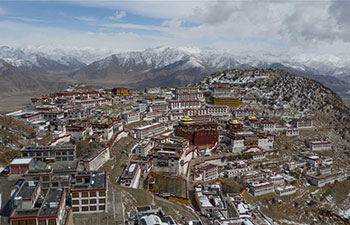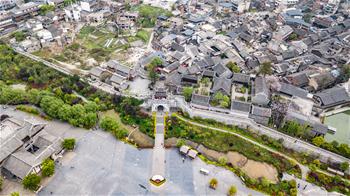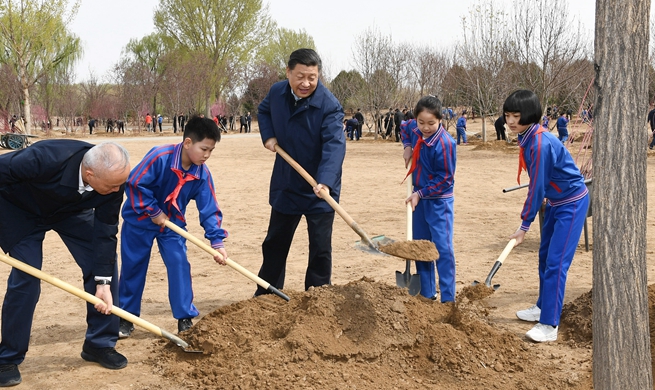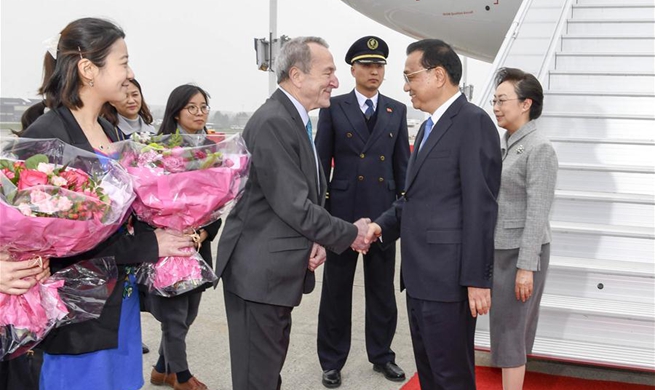ENTEBBE, Uganda, April 9 (Xinhua) -- Uganda has set up a national task force to advise government on domesticating technological advance from the fourth industrial revolution to fast track the country's economic development.
The 23-people task force, which comprises of engineers, scientists, policy makers and the academia will also advise government on disruptive technologies that can be avoided.
Ugandan President Yoweri Museveni, who launched the team, 40 km south of the capital Kampala, urged the committee to focus on technologies that address local issues like increasing agricultural production, on which the biggest percentage of the country's population relies.
Museveni said focusing on domesticated technologies is critical in avoiding the draining of the country's foreign exchange.
He said African countries should desist from foreign pressures that advocate for specialization for instance in services and leaving manufacturing. He said there must be a holistic approach.
"The new technologies should help people produce products and services according to the principles of comparative advantage," Museveni said on Monday.
John Nasasira, head of the task force dubbed "Expert National Task Force on Fourth Industrial Revolution", said the country can not afford to lag behind in harnessing the opportunities in emerging technologies.
"Uganda has to be a user and beneficiary of the technologies of the fourth industrial revolution," Nasasira said, noting that the cyberspace is free for all countries to use.
"In Europe, they may be talking about automated vehicles but we know for a fact that technologies such as Artificial Intelligence (AI) can work in agriculture," said Vincent Bagiire, permanent secretary ministry of Information, Communications Technology (ICT) and national guidance said.
SETTING PACE
As the task force embarks on assessing the appropriate technologies for Uganda, Frank Tumwebaze, minister of ICT and national guidance, said the ICT infrastructure is in place upon which everything else is built.
Tumwebaze said over 8,000 km of fiber optic cables have been laid across the country by government with support from China under the 106 million U.S. dollar National Data Transmission Backbone. Private telecommunication companies have also laid their fiber in areas where government has not reached.
Tumwebaze said areas where the fibre cables can not be laid, like in mountainous districts, satellite connectivity would be used.
"By next year 116 districts will be connected to the internet," he said.
Ministry of finance figures show that as a result of the connectivity, the number of internet users has increased by 45 percent to 18.8 million in 2017 from 13 million in 2015.
Active telephone subscribers are now 22.4 million and the number of mobile money subscribers increased to 23 million in 2017 from 2.8 million in 2011.
Tumwebaze said since there is connectivity in many parts of the country, government is now working on how effectively it can use the internet to fast track development.
The country is building a national innovation hub that will house 300 innovators. The innovators will be mentored to develop applications that provide solutions to the development problems the country faces.
Government, according to Tumwebaze is already supporting five private innovation hubs that are also producing solutions.
"The solutions are the equivalent of what is already in the market but which we import, like Uber, WhatsApp," Tumwebaze said.
"From the support we are giving, we have been able to support 12 applications that are already in the market being consumed," he added, noting that another 50 applications would be supported this financial year.
He said there are over 600 applications for innovation grants and a selection process would soon start.
DEBATE
There are varied global opinions regarding whether emerging technologies will be the ones to revolutionize the economic development.
Experts at the World Economic Forum held in Davos, Switzerland, early this year argued that technologies like AI will drive the next generation of industrial revolution.
Museveni argued that as the world pushes for the fourth industrial revolution, there are gaps of the second and third revolutions in places like Africa that must be plugged for proper development to happen.
He said Africa needs to overcome bottlenecks including infrastructure development such as roads, rail and electricity, human resource development, market integration to lower costs of doing business and attract investments.
Tumwebaze argued that whereas there are gaps to fill, adoption of appropriate new technologies can be used as enablers to economic development.
"Everybody talks about AI. This technology will facilitate other sectors. People are talking of computers that can think like humans, recognize complex patterns, process information and draw conclusions," he said.













